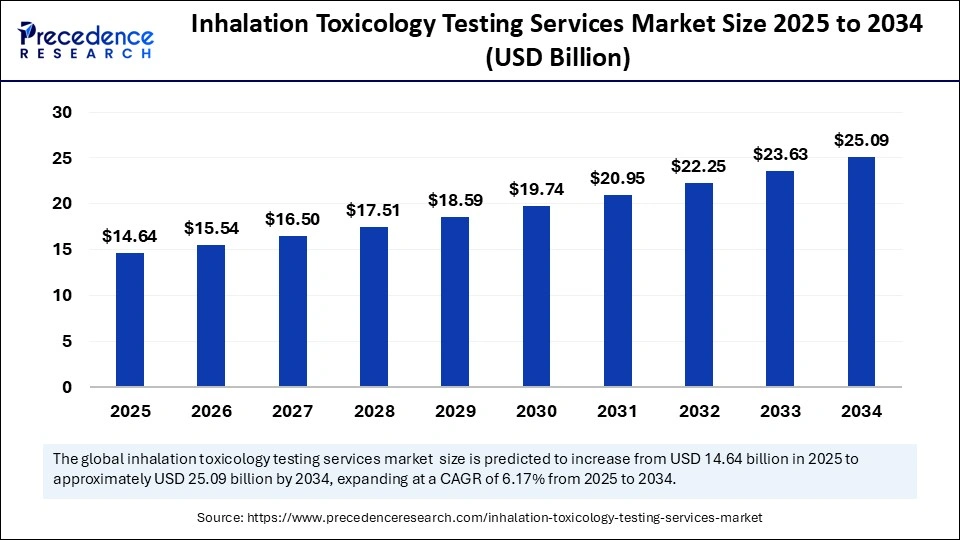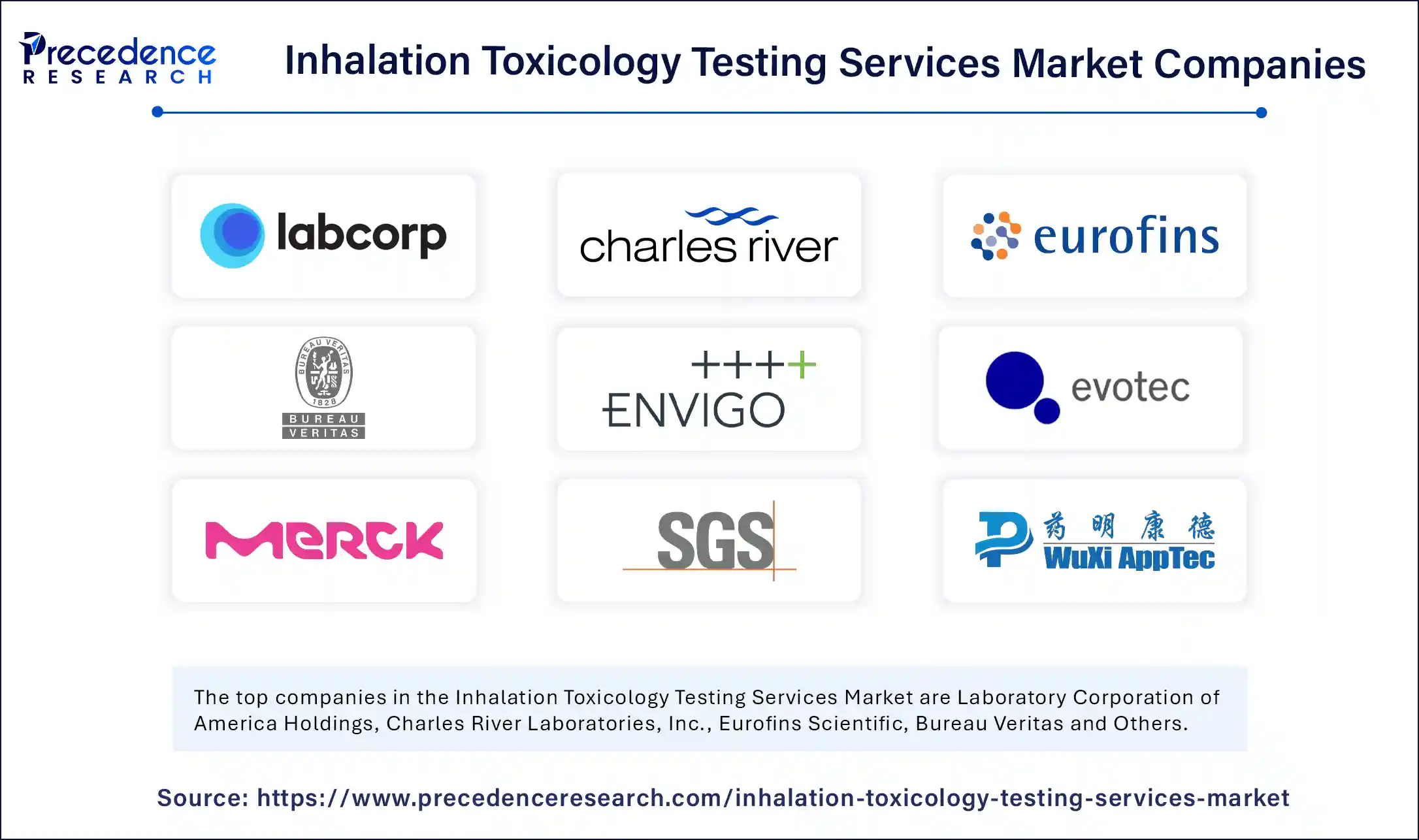
The Inhalation Toxicology Testing Services Market has become one of the most critical sectors in pharmaceutical research, industrial chemical safety assessments, and consumer product evaluation. Inhalation toxicology testing provides scientific evidence on the potential health impacts of airborne substances when inhaled by humans or animals. With the increasing prevalence of air pollutants, chemical emissions, and advanced therapeutic formulations delivered through inhalation routes, the market has witnessed substantial growth.
This market provides essential services for evaluating the safety, efficacy, and toxicity of inhaled compounds. Regulatory agencies worldwide mandate inhalation toxicology assessments for products ranging from pharmaceuticals and biopharmaceuticals to agrochemicals and industrial solvents. The growing emphasis on worker safety, consumer protection, and drug innovation is expanding the demand for these services globally.
As industries diversify their portfolios, the Inhalation Toxicology Testing Services Market is expected to remain a fundamental enabler of safe product development, making it a central focus for healthcare, chemical, and industrial sectors alike.
AI and Innovation
Artificial Intelligence (AI) has revolutionized the landscape of inhalation toxicology testing. Traditionally, studies relied heavily on in-vivo experiments, which were time-consuming and resource-intensive. AI is now enhancing predictive toxicology models by simulating respiratory system interactions with inhaled compounds. Machine learning algorithms are being deployed to analyze large toxicology datasets, identifying patterns of exposure and predicting dose-response outcomes.
AI-driven in-vitro testing platforms are allowing researchers to minimize animal usage while improving the accuracy of toxicological predictions. Integration of computational toxicology with AI also accelerates decision-making processes for regulatory submissions, enabling companies to streamline testing cycles and reduce overall costs.
Innovations such as 3D lung-on-chip models, AI-enabled exposure chambers, and high-throughput screening platforms are reshaping the Inhalation Toxicology Testing Services Market by offering more reliable, ethical, and rapid evaluation methods. As AI adoption grows, service providers are likely to leverage these tools to strengthen their competitive positioning and deliver higher value to clients across diverse industries.
Future Trends of Market
The future of the Inhalation Toxicology Testing Services Market is defined by technology integration, regulatory evolution, and shifting industry priorities. Personalized medicine and precision drug delivery systems are emerging trends, driving the need for tailored inhalation toxicology studies.
With environmental concerns on the rise, industries are adopting stricter guidelines for chemical emissions, fueling demand for comprehensive inhalation toxicology services. Another trend is the growing shift toward in-vitro and in-silico models to minimize ethical concerns around animal testing.
Additionally, collaborations between contract research organizations (CROs), pharmaceutical companies, and academic institutes are increasing, fostering innovation and knowledge sharing. The introduction of real-time monitoring systems, portable toxicology testing devices, and digital twin models for respiratory analysis is expected to shape the market’s next growth phase.
Rising Demands of Market
The demand for Inhalation Toxicology Testing Services is rising due to multiple factors. The pharmaceutical industry is increasingly relying on inhalation routes for therapies targeting respiratory diseases such as asthma, COPD, and pulmonary infections. Novel drug delivery mechanisms, including inhaled biologics and nanoparticles, require advanced inhalation toxicology studies to ensure safety and efficacy.
Environmental pollution has also emerged as a driver of testing services, with regulators demanding extensive assessments of chemical emissions, industrial by-products, and particulate matter exposure. The growth of industries such as agrochemicals, automotive manufacturing, and consumer products further boosts demand.
Additionally, the post-pandemic era has heightened awareness of respiratory health, increasing research investments into inhalation toxicology services. The demand is particularly strong in emerging markets, where industrial growth and rising pollution levels necessitate stringent toxicological testing.
Key Market Highlights
-
Expansion of CRO capabilities with specialized inhalation toxicology units.
-
Rising adoption of AI and computational toxicology models.
-
Growing use of lung-on-chip and organoid models for predictive testing.
-
Increasing demand for inhalation studies in biologics and nanomedicine.
-
Strong regulatory support mandating inhalation toxicology across industries.
-
Significant growth opportunities in Asia-Pacific and Latin America.
Market Growth Drivers
-
Pharmaceutical Advancements: The development of inhaled therapies for respiratory and systemic diseases is fueling demand.
-
Regulatory Requirements: Mandatory inhalation toxicology assessments by global health authorities are driving consistent market growth.
-
Environmental Concerns: Rising air pollution levels and chemical emissions necessitate comprehensive toxicological testing.
-
AI and Technology Integration: Innovations in computational toxicology, lung models, and exposure chambers are accelerating service adoption.
-
CRO Expansion: Outsourcing toxicology studies to specialized CROs allows pharmaceutical and industrial firms to reduce costs and enhance compliance.
Restraints
Despite its promising growth, the Inhalation Toxicology Testing Services Market faces certain restraints. High costs associated with advanced inhalation studies can limit access for small and mid-sized enterprises. Ethical concerns regarding animal testing also pose challenges, with increased scrutiny from both regulatory bodies and the public.
Additionally, the complexity of replicating real-world inhalation exposure in laboratory settings requires advanced infrastructure, making entry into this market difficult for new players. Variability in regulatory guidelines across regions can further complicate global service standardization.
Opportunities
The market presents significant opportunities for service providers and investors. Expansion into emerging economies offers immense growth potential, as these regions experience rapid industrialization and rising environmental concerns.
Technological breakthroughs, such as AI-enabled toxicology testing and organ-on-chip models, provide opportunities for differentiation and enhanced accuracy. The increasing focus on personalized medicine also creates demand for customized inhalation toxicology services.
Strategic partnerships, collaborations, and investments in R&D are likely to help companies capture untapped opportunities in this evolving market.
Regional Insights
North America
North America dominates the Inhalation Toxicology Testing Services Market due to its advanced healthcare infrastructure, strict regulatory environment, and strong presence of CROs. The region also benefits from substantial investments in AI-driven toxicology innovations.
Europe
Europe follows closely, driven by stringent environmental regulations and active adoption of alternative testing models. Countries such as Germany, the UK, and France are leading contributors to the regional market.
Asia-Pacific
Asia-Pacific is emerging as the fastest-growing region, with rapid industrialization, increasing pharmaceutical R&D investments, and rising pollution levels creating strong demand. China, India, and Japan are key contributors to market expansion.
Latin America and Middle East & Africa
These regions are gradually adopting inhalation toxicology services, driven by increasing industrial growth and regulatory reforms. The potential for expansion is significant, particularly in countries with rising pharmaceutical and chemical industries.
Also Read@ https://www.pharma-geek.com/dehydration-monitoring-devices-market/
Inhalation Toxicology Testing Services Market Companies

- Laboratory Corporation of America Holdings
- Charles River Laboratories, Inc.
- Eurofins Scientific
- Bureau Veritas
- Envigo
- Evotec AG
- Merck KGaA
- SGS Group
- Pharmaceutical Product Development
- LLC (PPD)
- WuXi AppTec
Recent Developments
- In May 2025, AstraZeneca demonstrated its latest clinical and real-world data across leaing inhaled, biologic, and early science respiratory portfolio at the American Thoracic Society (ATS) International Conference, in San Francisco, CA. this launch includes over 75 abstratcs such as eight late-breakers, innovations in unmet needs in care in all severities of asthma, chronic obstructive pulmonary disease (COPD), and eosinophilic granulomatosis with polyangiitis (EGPA). (Source: https://www.astrazeneca.com)
- In March 2025, an innovator in predictive toxicology and drug discovery solutions, AsedaSciences, announced the launch of a state-of-the-art zebrafish screening service, ZBEScreenTM. This service has been developed in collaboration with the renowned Tanguay Lab to provide testing services with the expertise of Prof. Robyn Tanguay
Get Free sample Link @ https://www.precedenceresearch.com/sample/6845
- Exosome Therapeutics Market Size to Reach USD 4,020.75 Thousand by 2034 - October 7, 2025
- Microalgae Biotechnology Market Size, Report by 2034 - October 7, 2025
- Inhalation Toxicology Testing Services Market Size to Reach USD 25.09 Billion by 2034 - September 25, 2025
